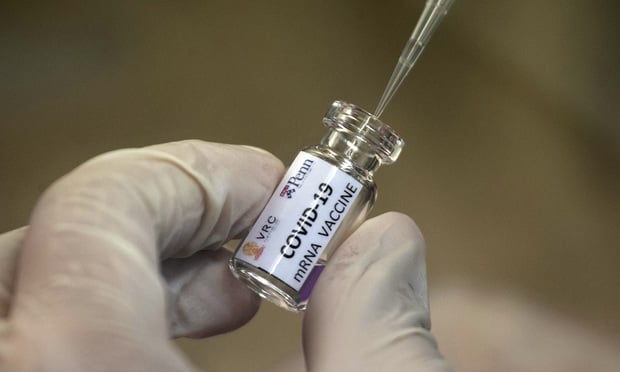Thomas A Moore

December 05, 2022 | New York Law Journal
Implied Physician-Patient RelationshipsAlthough there are limited circumstances in which a physician will be deemed to owe a duty of care to a non-patient, even in those cases the duty flows from a physician-patient relationship with someone else.
By Thomas A. Moore and Matthew Gaier
13 minute read

October 03, 2022 | New York Law Journal
Recent Appellate Decisions: Pretreatment Agreements, Ex Parte InterviewsAs demonstrated by recent cases, the law pertaining to 'Arons' authorizations is fairly well developed at this point.
By Thomas A. Moore and Matthew Gaier
12 minute read

August 01, 2022 | New York Law Journal
Dead Man's Statute: A Potentially Powerful Evidentiary RuleThis column discusses the Dead Man's Statute and decisional law addressing its potential application in both circumstances.
By Thomas A. Moore and Matthew Gaier
13 minute read

June 06, 2022 | New York Law Journal
Liability for Violating Directives To Forgo Life-Sustaining TreatmentA person's right to decide to forgo life-sustaining treatment is recognized in this state, but whether a violation of that right gives rise to liability in tort has somehow been called into question.
By Thomas A. Moore and Matthew Gaier
14 minute read

April 04, 2022 | New York Law Journal
Departure From Accepted Standards: Navigating the Hindsight RuleThe rule prohibiting hindsight in medical malpractice actions is often the subject of misapplication and misuse. In their Medical Malpractice column, Thomas Moore and Matthew Gaier clear things up by distinguishing the type of subsequent evidence that is prohibited as impermissible hindsight from admissible deductions based on circumstantial evidence.
By Thomas A. Moore and Matthew Gaier
12 minute read

January 31, 2022 | New York Law Journal
Quality Assurance Privilege and Party StatementsOne area of statutory privilege that has implications for medical malpractice actions is that relating to hospital quality assurance review and malpractice prevention programs under Education Law §6527(3), Public Health Law §2805-j and Public Health Law §2805-m. The statutes, however, exempt from privilege statements made by a party in an action that is the subject of the review. This exception has been addressed in various appellate decisions. In their Medical Malpractice column, Thomas Moore and Matthew Gaier discuss several of the decisions.
By Thomas A. Moore and Matthew Gaier
14 minute read

December 06, 2021 | New York Law Journal
Proper Venue for Malpractice ActionsA circumstance sometimes arises in medical malpractice actions where venue is decided based upon a physician's principal office. A recent decision by the Court of Appeals addressing that circumstance provides the opportunity for authors Thomas Moore and Matthew Gaier to examine the venue rules as they apply in malpractice actions.
By Thomas A. Moore and Matthew Gaier
15 minute read

October 04, 2021 | New York Law Journal
Patients' Right to Their Own EMR MetadataMedical records that used to be recorded primarily on paper, in the form of either handwritten or typed notations, are now entered on computers and stored electronically on computers or file servers. As Thomas A. Moore and Matthew Gaier explore in this edition of their Medical Malpractice column, this new medical record medium has effected a sea change on medical malpractice litigation in several respects.
By Thomas A. Moore and Matthew Gaier
17 minute read

August 02, 2021 | New York Law Journal
Evidentiary Use of Learned TreatisesIn a recent column in the New York Law Journal, Professor Michael Hutter raised the question of whether New York should adopt FRE 803(18), the Federal Rule of Evidence pertaining to the admissibility at trial of statements contained in treatises, periodical or pamphlets. Hutter's position was that adoption of the rule would be "a progressive step forward." In this edition of their Medical Malpractice column, Thomas Moore and Matthew Gaier explain why they "respectfully disagree."
By Thomas A. Moore and Matthew Gaier
15 minute read

May 28, 2021 | New York Law Journal
Update on COVID-19 IssuesLast spring, when New York was the epicenter of the COVID-19 pandemic, Medical Malpractice columnists Thomas A. Moore and Matthew Gaier wrote a series of articles focusing on two issues affecting malpractice litigation that flowed directly from the state's response—immunity to health care professionals and facilities, and the toll on the statute of limitations. Both of those matters have undergone modifications over the past year. Those changes and their impact are the subject of today's column.
By Thomas A. Moore and Matthew Gaier
13 minute read
Trending Stories
- 1Gibson Dunn Sued By Crypto Client After Lateral Hire Causes Conflict of Interest
- 2Trump's Solicitor General Expected to 'Flip' Prelogar's Positions at Supreme Court
- 3Pharmacy Lawyers See Promise in NY Regulator's Curbs on PBM Industry
- 4Outgoing USPTO Director Kathi Vidal: ‘We All Want the Country to Be in a Better Place’
- 5Supreme Court Will Review Constitutionality Of FCC's Universal Service Fund
More from ALM
- Legal Speak at General Counsel Conference East 2024: Match Group's Katie Dugan & Herrick's Carol Goodman 1 minute read
- Legal Speak at General Counsel Conference East 2024: Eric Wall, Executive VP, Syllo 1 minute read
- Legal Speak at General Counsel Conference East 2024: Virginia Griffith, Director of Business Development at OutsideGC 1 minute read



